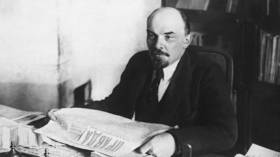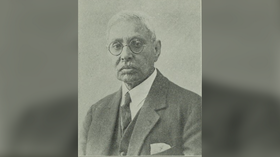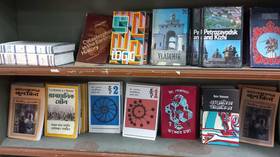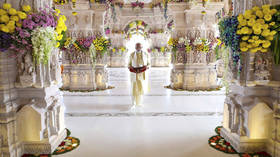The 100-year-old firebrand: A legendary communist who fought exploitation and sex abuse celebrates his centennial
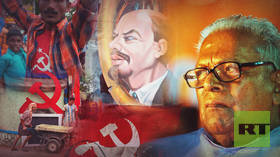
January 21 marked the 100th anniversary of the death of Vladimir Lenin, the first leader of the Union of Soviet Socialist Republics (USSR), and it was a moment marked by India’s last-surviving communist government.
“Lenin developed Marxism as a revolutionary principle,” said Pinarayi Vijayan, the chief minister (CM) of the southern Indian state of Kerala. “His extraordinary intelligence, fearless revolutionary spirit and exceptional leadership qualities gave spirit and direction to the Russian revolution.”
The communist parties in India have lost power in West Bengal and will not return for the foreseeable future. The Left Democratic Front (LDF), led by the Communist Party of India (Marxist), CPI-M, in Kerala remains; though skeptics might say the political parties survive even if the ideology’s true spirit and essence are missing. And one of the stalwarts who kept the party alive despite the collapse of the Soviet Union was Venthalathara Sankaran Achuthanandan aka VS, who turned 100 last October.
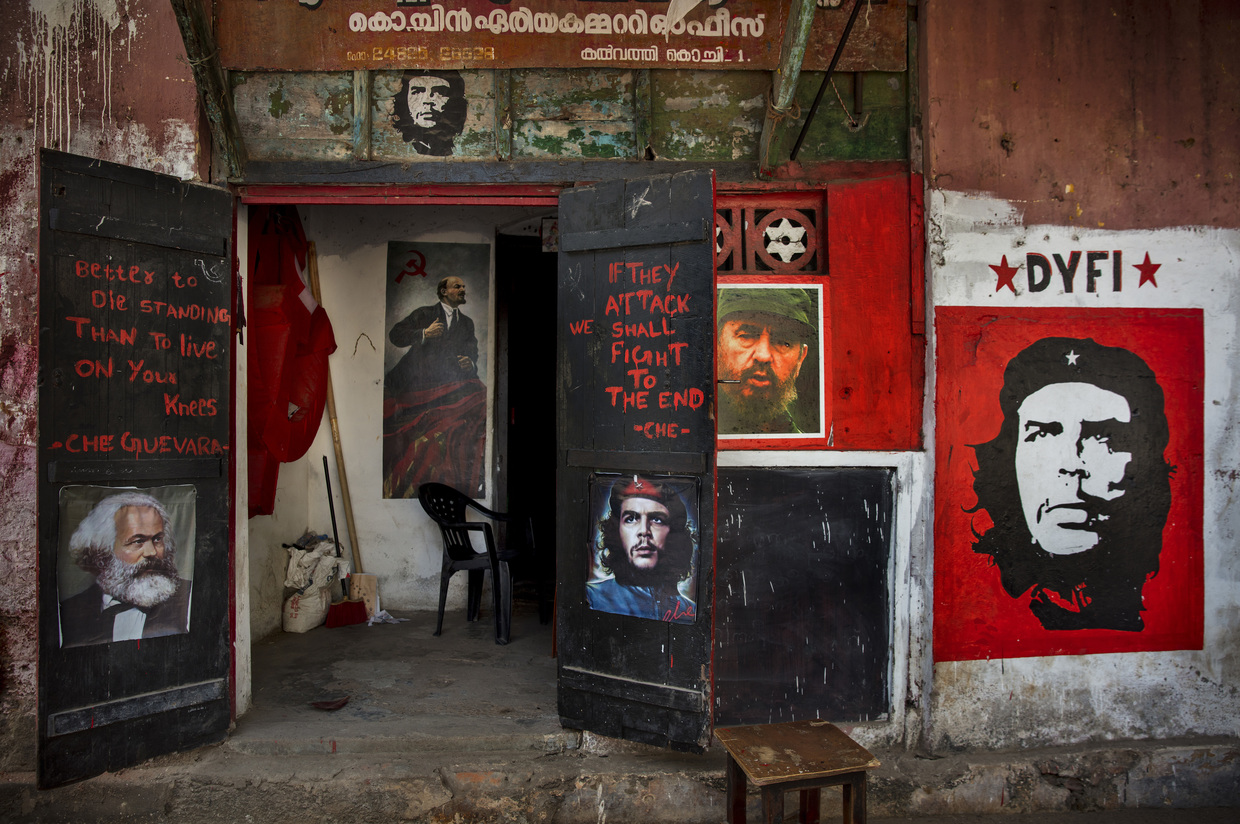
VS held Kerala spellbound for decades; but in the past five years, the state has missed his fiery voice. He was once the state’s CM and thrice its opposition leader, as well as serving as the CPI-M state secretary for years. A quintessential communist, his foray into politics came at a tender age, forced by the poverty, inequality, and casteism of the pre-Emergency period in India, which only worsened with the imposition of Emergency rule by then Prime Minister Indira Gandhi in June 1975.
A politician of a non–pragmatic era that was fueled by ideology and principles, VS stood the test of time and was a leader in the state for more than eight decades.
VS became the only surviving founding member of the CPI-M when, on November 15, 2023, party colleague and freedom fighter N Sankaraiah of neighboring Tamil Nadu died at the age of 102. Out of the limelight due to poor health, VS still remains ‘Kannu’ and ‘Karalu’ (Malayalam terms of affection) to the masses.
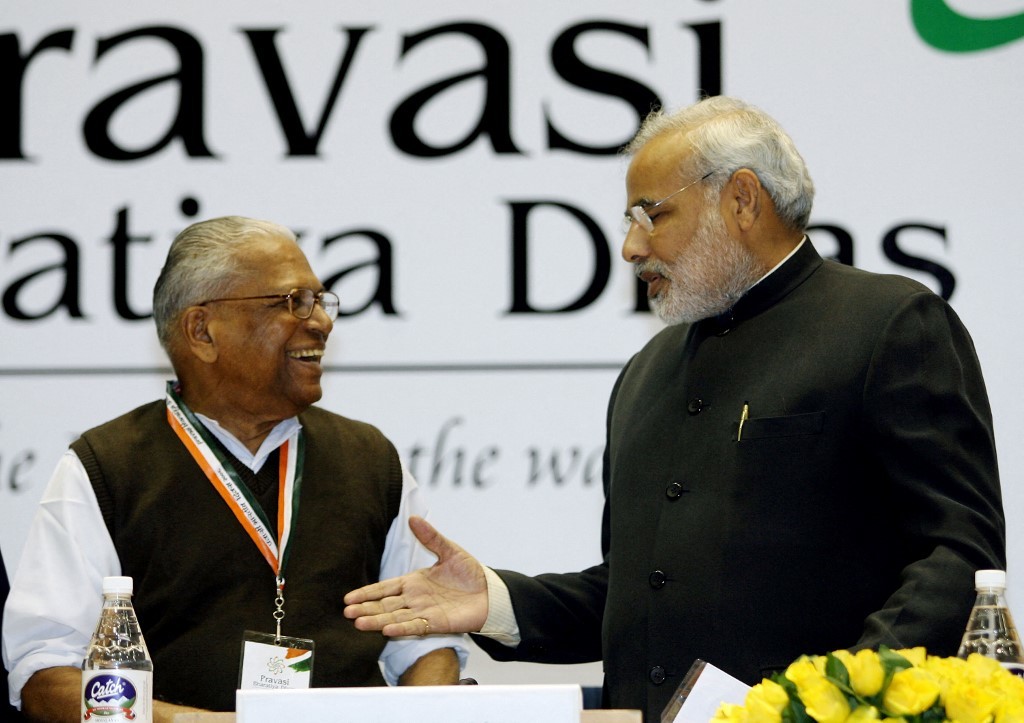
From tailoring to the coir factory, to embracing communism
VS was born in Alappuzha district (carved out on August 1957 from Kerala’s Kottayam and Kollam districts) in a family from the oppressed Ezhava community. He lost his mother Akkamma when he was just four, and father Sankaran when he was 11. His elder half-brother Gangadharan took care of Achuthan (as he was known in childhood) and their two other siblings. The family struggled to have a meal every day. Achuthan stopped school in seventh grade, because he was starving.
Not finishing school was commonplace for the poor, whose children began working at a young age. Achuthan’s first job was at Gangadharan’s tailor shop. Discussions on politics, local and global, are characteristic of Kerala’s tailor shops, tea shops and hair salons, and Gangadharan’s was no exception. The heated discourse there was Achuthan’s elementary political education. He joined the state Congress in 1939.
Gangadharan arranged work for Achuthan at a coir factory. Iconic communist leader P Krishna Pillai was among the factory workers and was Malabar (northern region of Kerala) committee secretary for the Socialist party. Achuthan, 16, also began uniting co-workers against exploitation. They spoke of India’s independence movement gaining momentum and of how the Communist party was attracting people in large numbers.
After 1939, the Communist party was publicly engaged in political activity. Achuthan’s hard work paid off. He was made a party member, a rare honor, in March 1940. VS began uniting fishing workers, but his leadership of another group while in his early 20s proved to be his political breakthrough.
A toddy worker died and the family wanted his burial on the land where he lived and worked. Toddy is what locals call palm wine, the poor man’s alcohol. Tapping palm trees is traditionally an occupation for men in VS’s Ezhava community; and though it is still a poor person’s job, modern toddy shops thrive in the state today, giving Kerala one of its unique features.
The hut of the toddy worker’s family stood on the land where he worked, but the landlord prevented them from carrying out a burial. VS challenged the feudal lord and made sure the burial took place. In no time, VS became secretary of a local toddy workers union, and this built his image as a people’s leader. He remained a union office bearer until 2001.

Punnapra-Vayalar uprising
Punnapra and Vayalar are two villages in Alappuzha, Kerala. In October 1946, the Amabalapuzha-Cherthala region came under military rule with Sir CP Ramaswamy Iyer, the diwan (prime minister) of the erstwhile princely state of Travancore, assuming the position of Lieutenant-General of the State Force.
Punnapra-Vayalar Samaram in October 1946 was an uprising by peasants, agricultural laborers, and coir workers against an exploitative system and the autocratic rule of Sir CP (as he was called). VS’s leadership in coordinating party workers, maintaining morale and working restlessly for the uprising has been chronicled by close aide P Jayanath in VS nte Aathmarekha (roughly, ‘VS’s autobiographical record’).
“The Diwan had declared an Emergency on October 1, 1946, that banned protests of all forms,” the book states. “If a press published anything related to the communists, that press would be sealed off. Orders were sent to seize the property of communist party leaders.
“The All Travancore Trade Union Congress called a general strike on October 22, 1946. A large number of workers… marched to the reserve police camps at Punnapra demanding freedom.
“The officer-in-charge ordered a firing. Many demonstrators died... Within 24 hours of the clash, the Ambalapuzha and Cherthala taluks were handed over to the army. There was a regular manhunt in the villages...
“On October 27, when the camp’s inmates were having their mid-day meal, they were surrounded by the army, which began firing and killed many (the exact numbers are still not known). Firing continued till ammunition was exhausted. Then, bayonets were used to kill those who were still alive.” (From Peoples Democracy).
VS was arrested on October 28, 1946. He was tortured but released in March, 1949. By then, India was independent. Kerala as a state came into existence on November 1, 1956.
VS was jailed for a second time in 1962, during the India-China war, for a year. He was jailed for a third time during the 1975 Emergency. By that time, he was married to Vasumathi, a government nurse, and they had a daughter and a son. He was arrested on the second day of the Emergency at home in Alappuzha and was jailed for the duration of the Emergency, lasting 20 months.
Split in the communist movement
Kerala elected the first communist government in the world. It was led by stalwart Elamkulam Manakkal Sankaran (aka EMS) Namboodiripad. The election to the state legislature was on February 28, 1957. VS was in charge of ten constituencies in Alappuzha; the party won eight of the ten seats. And at the age of 35, he was selected for the National Council.
With independence, communists had a new dilemma: what should be the nature of their engagement with the new state and with the ruling classes? The debates led to the Communist Party of India splitting into two in – the Communist Party of India (Marxist) or CPI-M, and the Communist Party of India (CPI). The CPI-M opposed cooperation with the Congress. VS and 31 others resigned from the Communist party’s national council to form the CPI-M.
The CPI-M was the stronger political party and, from around 1970, the Communist Party of the Soviet Union began an association with it, inviting the CPI-M to send a delegation to the USSR for an official visit. As a Central Committee member, VS was part of the delegation that visited in 1973, and was there for a week, visiting Lenin’s tomb, the Kremlin, and attending meetings with Soviet party leaders (but was unable to meet General Secretary Leonid Brezhnev).
The end of the Soviet Union less than two decades later did not impact the communist model in India. One reason may have been the Indian communist parties’ evolution as ‘normal’ Indian political parties. In West Bengal, the CPI-M only lost power in 2011, after ruling for 34 years. The CPI-M also had a long run in the northeastern state of Tripura between 1993 and 2018 (after the USSR ceased). It continues to be a force in Kerala, returning to power in 2021 with a resounding majority.
The left’s success in Kerala was attributable, according to Kancha Ilaiah Shepherd, to it being led by two ‘backward’ caste Ezhava leaders – VS and current Chief Minister Pinarayi Vijayan. The West Bengal and Tripura units did not see much mobility from similar ‘backward’ castes, much less Dalits (at the bottom rung of the social pyramid). VS’s personal story of mobilization among the poorest of the masses made him a pillar of the party, and was a major reason the communists penetrated deep into Kerala, surviving even the end of the Soviet Union.
Legislative politics
VS lost his first election for the state assembly in 1965, which he contested in the Amabalapuzha constituency of Alappuzha. He succeeded at his second attempt, focusing on the workers in the coir, farming and fishing sectors.
His speeches in the assembly from then until he was an MLA between 2016 and 2021 left all other legislators, even younger ones, envious of his vigor and energy. VS cultivated a fierce oratory filled with slang, local proverbs, and a passionate style that left audiences captivated. He spoke of the common man’s issues. He advocated welfare boards for toddy workers, farm laborers and fishermen.
VS was president of the Ambalappuzha toddy tappers union for 50 years. He was president of Kerala Karshaka Thozhilali Union (Kerala Agricultural Workers Union) that was formed in March 1968. It organized a huge public rally in December 1969 that was a prelude for the Kerala Land Reforms Act, which drastically transformed land ownership in the state.
For the CPI-M in Kerala, the state secretary has authority over the party’s organization machinery and hierarchy. VS held this post from 1980 to 1992.
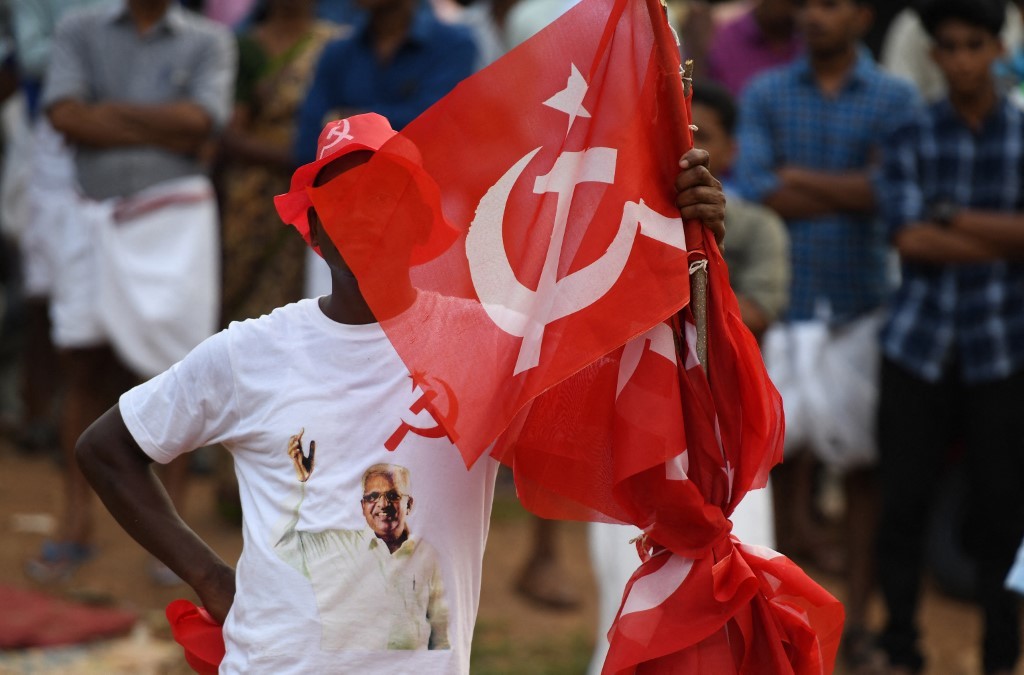
An environmentalist politician
VS was chief minister of Kerala for a single term (2006 to 2011). He was the leader of opposition for three terms: 1991-1996, 2001-2006 and 2011-2016. He made more impactful moves in opposition and his final term strengthened his image as an anti-corruption crusader.
The Congress Party-led United Democratic Front (UDF) is the CPI-M-led Left Democratic Front (LDF)’s main rival in Kerala. When it came to power in 2001, VS declared war on land encroachment, especially in forests. He traveled to Mathikettan in April 2002, a remote area in Idukki district, and hit the headlines. VS shared findings with the media that over 3,000 acres of thick forest land had been cut down and encroached upon by powerful people. He demanded a judicial enquiry.
In May 2002, VS went on a similar mission to Pooyamkutty. This time, environmental activists joined him. He spent four hours in the Pooyamkutty hills and found rampant encroachment there too. VS then visited the Mookkunnimala hills in Thiruvananthapuram after hearing complaints of illegal quarries. His popularity skyrocketed.
When the LDF came to power in 2006, 82-year-old VS was sworn in as chief minister (CM). He campaigned for only ten days in his constituency, Malampuzha in Palakkad district. Among his major achievements as CM was legislation in 2008 to conserve paddy land and wetlands.
In 2007, he launched ‘Munnar Operation’ to dismantle illegal construction in the popular tourism destination of Munnar. Over a period of 29 days, illegal hotels and resorts were demolished and 16,000 acres of encroached government land recovered. The operation, however, was not seen through to its end, as one of the demolished properties was that of the CPI. Under pressure, VS had to call it off midway. His term also oversaw the launch of several infrastructure projects like the Kochi Metro rail project.

Opposing sex scandals
As opposition leader (2011-2016), VS demanded a fresh probe into two sensational sex scandal cases – the Kaviyoor and Kiliroor cases. He led a long battle in the infamous ice-cream sex scandal too, the accused being heavyweight politicians.
VS’s weakness was giving in to the headline-grabbing factionalism within the CPI-M’s state unit. As a result, he tasted unexpected failure in the 1996 assembly elections at Mararikulam in Alappuzha where both he and the party had a strong base. VS was tipped to be the CM had the LDF won the elections. The LDF did win, but VS lost. His defeat was attributed to the party machinery’s lethargy during the election.
Then, in 2005, all 12 members of the VS faction were defeated in the 18th state conference of the party in 2005. The opposing faction, known as the official faction, found its leader in incumbent Kerala CM Pinarayi Vijayan, (his second consecutive stint in the post) another old political warhorse.
In the 2006 elections, VS was initially denied a seat, which caused public outcry. The party faced rare backlash from within too. The late Justice VR Krishna Iyer, a well-respected public figure, wrote to the then party General Secretary Prakash Karat to ‘correct’ the decision. The CPI-M yielded, and VS sought the people’s mandate from the Malampuzha constituency. He became CM.
In May 2007, the CPI-M suspended VS and Pinarayi Vijayan from the party politburo for public statements against each other. VS was then the CM and Pinarayi Vijayan was the party state secretary.
VS was also the face of the LDF election campaign in 2016. Pinarayi Vijayan became the CM while VS continued to be a powerful voice both inside and outside the assembly. He was chairman of the fourth Commision of State Administrative Reforms from 2016 to 2022.
A minor stroke in 2019 left him hospitalized and he departed from public life, leaving a vacuum in the state’s political space.
Where India Meets Russia – We are now on WhatsApp! Follow and share RT India in English and in Hindi
